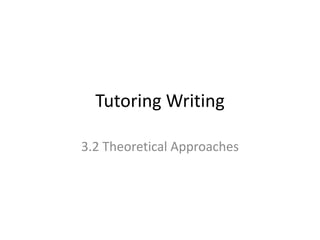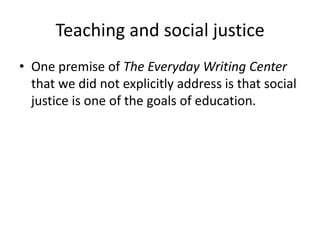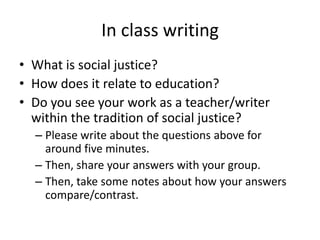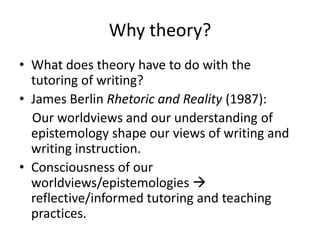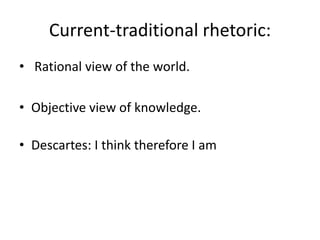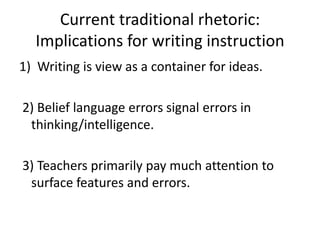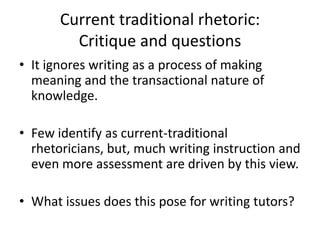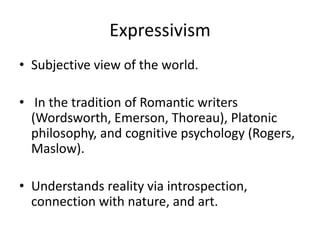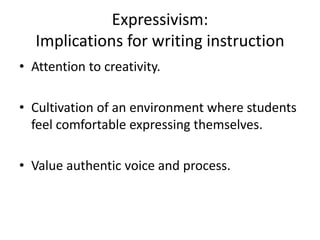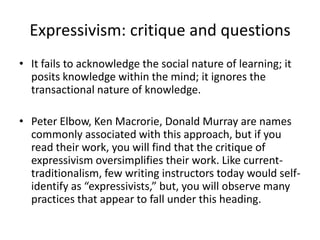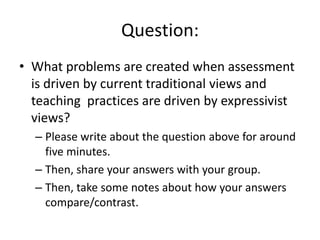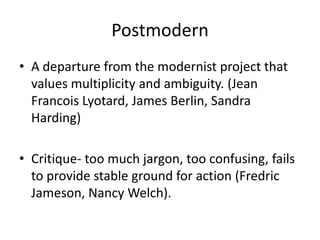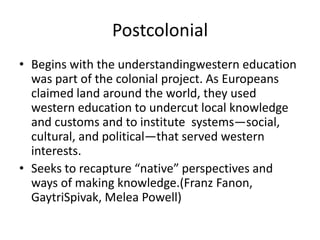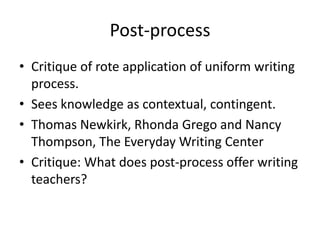This document discusses several theoretical approaches to writing instruction:
1) Current-traditional rhetoric views writing and knowledge objectively, focusing on surface errors. This ignores writing as a process and knowledge as transactional.
2) Expressivism sees knowledge as subjective, valuing creativity and expression. However, it ignores social aspects of learning and knowledge.
3) Social construction views knowledge as created through social interaction, emphasizing collaboration and discourse communities.
4) Cultural studies and postcolonial approaches see writing and rhetoric as part of civic participation and seek to incorporate marginalized perspectives.
